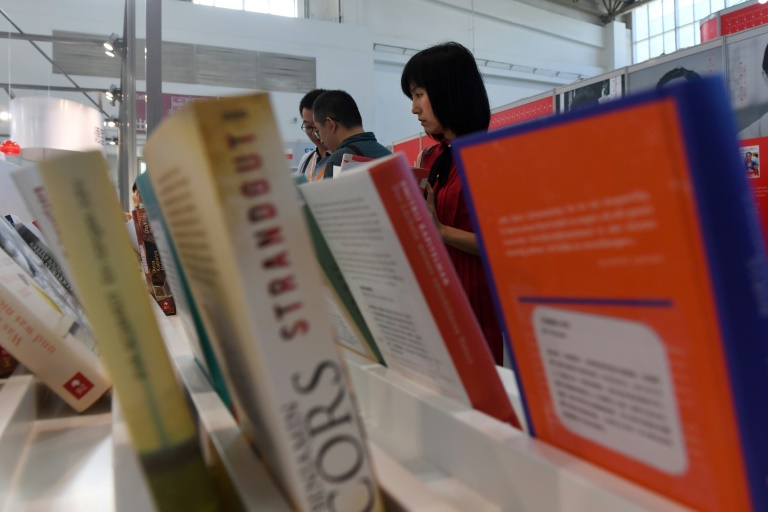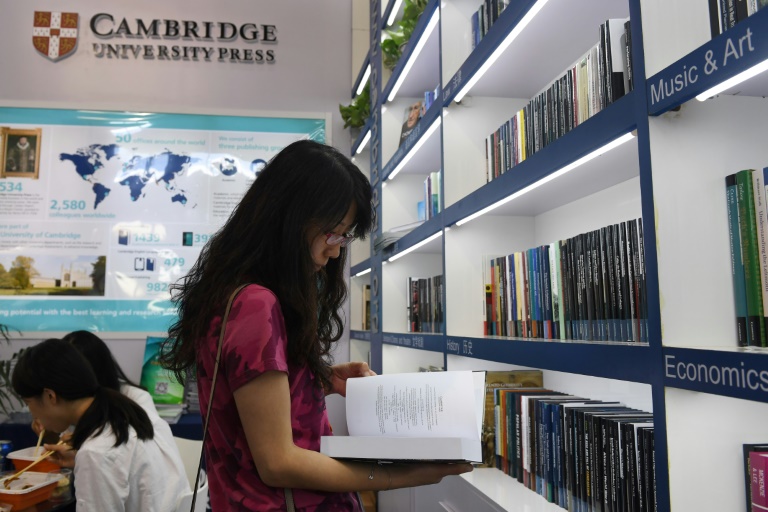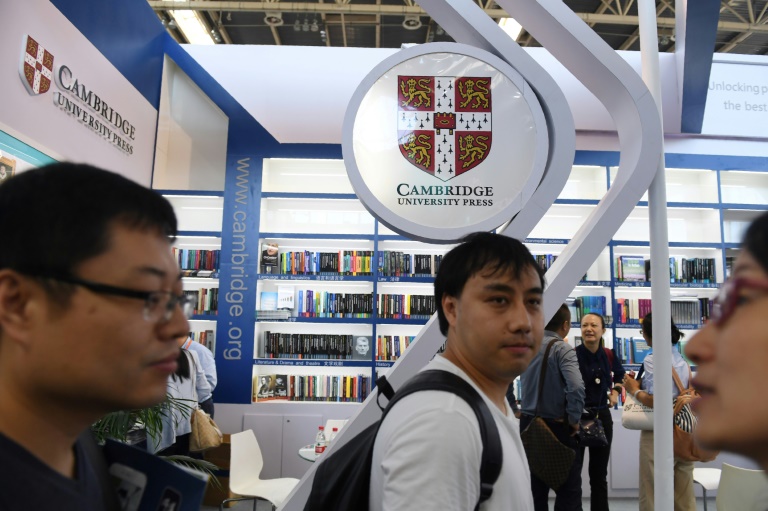Just days after the world's oldest publisher briefly caved in to Chinese censorship demands, international publishing houses are courting importers at a Beijing book fair, with some admitting they keep sensitive topics off their pages.
The censorship controversy that hit Cambridge University Press (CUP) sent a chill along the stands staffed by publishers from nearly 90 countries at the Beijing International Book Fair, which opened on Wednesday.
But some acknowledged their companies have already resorted to self-censorship to ensure that their books do not offend and are published in China.
CUP had given similar arguments when it initially complied with a Chinese import agency’s demand to block articles from its China Quarterly journal, before reversing course on Monday after coming under fire from the academic community.
Terry Phillips, business development director of British-based Innova Press, was candid about it as he prepared to meet a Chinese counterpart at the fair’s section for overseas publishers.

Some acknowledged that their companies have already resorted to self-censorship to ensure that their books do not offend and are published in China.
“We frequently exercise self-censorship to adapt to different markets. Every country has different sets of requirements about what they consider appropriate for education materials,” Phillips told AFP.
“But as authors, I think we also have a responsibility to find ways to teach good citizenship and human rights,” he said.
John Lowe, managing director of Mosaic8, an Asian educational publishing specialist based in Tokyo, said the authorities govern the distribution of the International Standard Book Number (ISBN) that companies need for their books to be sold in China.
“So it is in publishers’ interest to not publish something that would anger authorities,” Lowe said.
“You don’t mention the three ‘Ts’: Tiananmen, Tibet and Taiwan. But it’s usually fine to discuss human rights issues generally,” Lowe said.
– CUP quiet –
The 300 articles that were temporarily removed from China Quarterly’s website in China included texts on the 1989 Tiananmen Square protests, the status of Tibet, the self-ruled island of Taiwan and the Chinese democracy movement.
CUP had said last Friday that it wanted “to ensure that other academic and educational materials we publish remain available to researchers and educators in this market”.
In an about-face, the publisher announced on Monday that it was restoring access to the articles after international academics criticised CUP for succumbing to Chinese pressure and launched a petition demanding that it reverse course.

Some publishers participating in the fair said the uproar has created an atmosphere of anxiety about censorship.
But the US-based Association for Asian Studies revealed this week that CUP had received a request from China’s General Administration of Press and Publications to remove 100 articles from another publication, the Journal of Asian Studies.
Cambridge University officials said they would discuss the censorship issue with the importer at the book fair, which runs until Sunday, after expressing concern about “the recent increase in requests of this nature”.
Rita Yan, a CUP coordinator at the publisher’s booth, told AFP that the censorship issue “wasn’t affecting our activities at the book fair.”
Yan declined to comment further and said CUP’s managing director of academic publishing was unable to speak with the press because she was occupied with meetings.
– Censorship: ‘A selling point’ –
Other publishers participating in the fair said the uproar has created an atmosphere of anxiety about censorship.
“Currently, we don’t have any problems, but in the future, we don’t know,” said Ding Yueting, a marketer for Wiley, an educational publisher and research service based in New Jersey.

Rita Yan, a CUP coordinator at the publisher’s booth, told AFP that the censorship issue “wasn’t affecting our activities at the book fair.”
A representative of a large American publishing house, who requested anonymity because she was not authorised to speak to the press, said: “We’re nervous about whether there will be increased censorship requests from Chinese agencies in the future.”
But a representative of another major American publisher, who also requested anonymity, said that a factor influencing self-censorship decisions is that there would be “no point” in producing books that will likely get banned.
“It would be embarrassing to go through the trouble of translating a book from English to Chinese, and then being unable to publish in China,” he said.
“On the other hand, books that are censored in China often sell better abroad,” he said.
“It’s usually a major selling point.”






